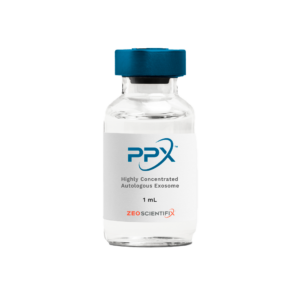No products in the cart.
Exosomes
Exosomes, tiny vesicles ranging from 30 to 150 nanometers, play a key role in intercellular communication. Cells release these bubble-like structures into their environment. They function as a biological postal service, delivering proteins, lipids, RNA, and DNA to other cells. This cargo can change the recipient cells’ behavior and physiology.
Exosomes have a vast, complex role in the body, impacting many physiological processes and offering therapeutic potential. They help regulate immune responses, support tissue repair, and may influence disease progression, including cancer and neurodegenerative disorders. Their ability to transfer genetic material and proteins between cells places them at the forefront of research. Scientists are exploring them for targeted drug delivery, personalized medicine, and regenerative therapies. Exosomes’ natural origin and ability to carry specific therapeutic agents make them promising for precision treatments with fewer side effects.
Showing all 3 results



